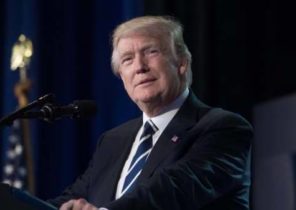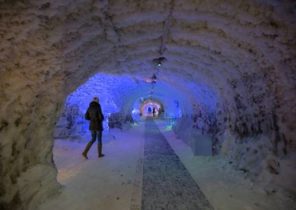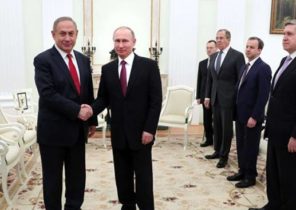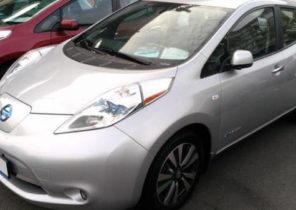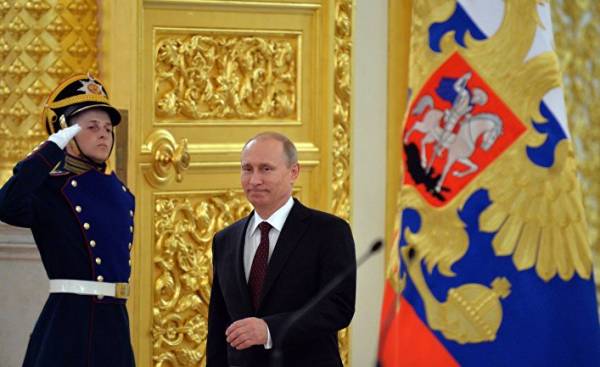
What connects cyber-attacks and interference in elections with Syria and Ukraine? Nostalgia for the might of the Soviet times.
While the Washington elite and the media are absorbed by the epic Russian break-ins and “secret collusion” remains unanswered is a much more important question: why is Vladimir Putin resorts to such measures? What Americans should expect in the future?
Due to his temperament and skills of a KGB officer, Putin does not belong to the number of people, intentions are easy to understand. As in all authoritarian States, secrecy is an integral part of the regime he established. But to make assumptions about the motives and goals of the Russian President we have, because otherwise you risk to be unpleasantly surprised by each new step.
“Who is Mr. Putin?” — this question was the refrain at the beginning of 2000-ies, when the gray cardinal of the FSB, the post-Soviet successor of the KGB, first became Prime Minister and then President, enjoying phenomenal popularity. In search of explanations for Putin’s behavior, the experts called it, and “authoritarian reformer,” and “agent” intelligence, and “bureaucrat”, and Russian “nationalist.”
But it seems that most consistently explains Putin’s policies gradually emerged another facet of his personality: the image of the ardent Soviet patriot. Putin’s speech and his spontaneous comments clearly indicate that in contrast to Western and Russian Democrats thought on “cold war” as a war without winners, it does not support. It seems that Putin sees the world order as unjust and immoral and also controlled by America. This conviction grew stronger in him in 2003 after the U.S. invasion of Iraq. Then in 2011, the West helped overthrow Libyan dictator Muammar Gaddafi. This intervention, which Putin compared with the Crusades.
The Russian President’s been acting like he took upon himself the historical mission to restore the “balance of power” in the world, as they used to say in the Soviet Union of the Brezhnev era. It seems that the outrage of injustice and the restoration of Russian power is its double motto. Although Putin has left open opportunities for cooperation with the United States in combating terrorism, arms control and non-proliferation of nuclear weapons, the rest of the geopolitics in his eyes turned into a game of “who’s who”: if the West wins, Russia loses — and Vice versa.
In this vein occurred in the presidential election of 2016 is impossible to name a single attack against America. It was part of a deliberate policy, part of a giant mosaic of geopolitical revival of Russia, which Putin has undertaken to lay down.
For many years, Moscow waged a cyber war, organized break-ins, implemented a “fake” news & engaged in political intervention. Last year, in addition to intervention in the American elections, Russia was one of the organizers of the attempted coup in Montenegro, in order not to allow it to join NATO. Starting from 2007 Russia is hacking the servers of the state, industrial or financial institutions in Estonia, Georgia, Lithuania, Bulgaria and Ukraine. Also, cyber attacks were launched against the international Olympic Committee and unclassified computers at the U.S. state Department. Now Germany’s leaders are so concerned about the potential interference in its own parliamentary elections in September, which made Moscow a hard warning.
Judging by everything listed — and especially for the fact that followed Putin’s election for a third term in 2012, his main foreign policy goal is to weaken Western democratic institutions and alliances, constantly undermining their legitimacy and reducing popular support. His response to the Russian expression “against whom are we for?” begins increasingly to sound like “anti-West” and “Russia” Putin wants to take revenge for the fall of the Soviet Union and to return Russia to its former glory geopolitical, military and moral counterweight to the US.
Such a reading of events was confirmed by the policy of Putin. Ukraine wants to join Europe? The West is profitable (once Putin called Ukraine a “foreign NATO Legion”). So, this must stop — to seize the Crimea and wage indirect war. The US wants to remove Bashar Assad from power in Syria and to support Pro-Western rebels? Then Russia will unite with sworn enemy of Americans by Iran to keep Assad in power. Hillary Clinton — the most likely contender for the presidency? Then Moscow needs to find incriminating evidence and publish these materials in order to sabotage her campaign and to legitimize the elections.
This is a dangerous game. In Russia, the legitimacy of Putin’s power became dependent on foreign political success and military triumphs. The Russian economy has stagnated, incomes are falling, poverty is increasing, and the aversion to the corruption of the regime is becoming stronger and clearer. The next presidential elections are scheduled for March, and the victory, Putin secured. However, one victory is not enough for him. He wants a loud confirmation of its popularity, abundant manifestations of loyalty and devotion, to which his regime will be based for the next six years.
After the meeting, trump and Putin at the summit in Hamburg last month controlled Russian forces have stepped up attacks on Ukrainian troops. Another catalyst of the Russian Patriotic hysteria can become Belarus and “the brotherly Slavic state,” that the valiant Russian soldiers and local “patriots” will be “saved” from imminent conquest by the NATO forces.
But the most big jackpot, it would be possible to thwart the invasion — most likely indirect — in Estonia, Latvia or Lithuania, thus exposing NATO, exposing it as a paper tiger which is unable or unwilling to give a military rebuff. While the world celebrates the 55th anniversary of the Cuban missile crisis, Putin can take on an impossible task and mistakes in the calculations, putting the US and Russia are on the brink of war, as did Nikita Khrushchev.
Addicted to winning — a habit that must be the most difficult to get rid of. Especially if someone perceives them as Putin as a way to correct a huge injustice committed against his country and stay in power. The recently enacted America’s anti-Russian sanctions despite his moral innocence and destructive power in the long term, today will not change Putin’s strategy. Perhaps he will only raise rates.
The best and only option is West, which could force Putin to abandon the “tug of war” and the restoration of its former power is to create for him a concrete obstacle in the Ukraine, in Syria and in any other place in which he decides to go. If only the West will be able to collect their will in a fist.
Leon Aron — Director of Russian studies at the American enterprise Institute.
